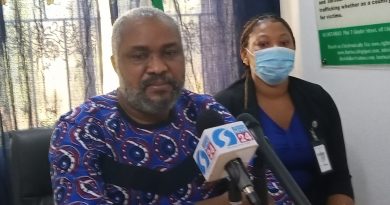3 Things You Can Pursue To Enhance Your Intellectual Capacity
Thomas Oppong
An intellectual pursuit is something akin to the pursuit of knowledge — it’s a learning process that can improve intelligence, build your capacity for better reasoning, sharpen your skills, and enhance your knowledge.
It can provide heightened awareness about yourself, your environment, life and living it — it can help us respond better to others. Deep and better knowledge awaits those who maintain their curiosity.
Instead of picking projects, careers, hobbies, and relationships based on just how they will make them feel, intellectually curious people focus on other things that can make their lives more significant and worthwhile.
History’s lifelong learners confronted big questions that helped them understand themselves and the world. They asked the same questions we still ask today:
What is my purpose in life? Who am I? Who do I want to become? What makes me happy? Where should I spend my time and energy? With whom? What makes my life meaningful? Fun? Satisfying?
If you can genuinely find practical tools, habits, skills and projects that can help you answer these questions, you will not only make your life incredibly better, you can also enhance your knowledge and skills in the process.
Identify your blind spots
Do you know blindspots?
Rhonda Louise Robbins once said: “We all have blind spots — those areas for improvement and growth. As painful as it can be to admit we’re doing things we never wanted to do and saying things we never wanted to say, it is this acknowledgement
Blind spots are things about ourselves we are unaware of — they keep us from seeing things about ourselves and others and making rational or objective judgements.
A blind spot can occur when your mind is made up or your opinion so strong, it prevents you from considering other arguments, facts or options. Our prejudices stifle and distort our thinking processes, interfering with our ability to think intelligently.
We can’t escape our blind spots, but we can be more aware of them, and take efforts to minimise our blind spots. A genuine pursuit to identify your blind spots can help you think better and more clearly.
Learning how to think better really means continuously learning about better mental models, questioning your assumptions, beliefs, world views and what you know to be “true”. But knowing is not enough. Learn how to apply what you are learning to improve your decision-making
One exercise you can use is to identify all the things/events/
Pick Up Unusual Artistic Hobbies
Beyond the usual hobbies you choose to do outside work, is there something new and different that can challenge you mentally?
If you are a web designer, you could learn how to paint? A writer can start a digital photography course to shot better pictures. A programmer can learn how to play an instrument or how to draw or better still how to invest.
You could also pick up drawing or painting in your spare time. There’s something almost magical about the brain connections when you you get your hands dirty.
Besides relieving stress and engaging the whole brain, hands-on artistic pursuits are a form of “neurobics,” according to Dr. Lawrence Katz in his book, “Keep Your Brain Alive: 83 Neurobic Exercises to Prevent Memory Loss and Increase Mental Fitness.”
Artistic hobbies stimulates the brain to grow new ones by using the senses in new ways. They also challenge the brain to build new pathways.
Learning something new requires you to stretch yourself physically, mentally or emotionally. Any hobby that involves a great deal of attention to detail can stave off cognitive decline and improve your memory.
Learn Cross Domain Courses
Benjamin Franklin once said, “An investment in knowledge always pays the best interest.”
Whatever your path in life, committing to learning completely new skills outside your domain can advance your career and help you improve yourself.
Courses are a great way to gain new knowledge and skills. You can “choose your own adventure” or approach. i.e. you determine which topics can bring out the best in you, the pace of learning and the type of learning material to consume.
Insightful posts, TED talks, documentaries, books and podcasts are great starting points for exploring a particular topic. But online courses can provide you the time to dig deeper and truly master a new skill.
Open Yale Courses and MIT Open Course Ware are two of the best places to learn about new topics, ideas, concepts, and better ways to solve problems in life and business.
You can also try Yale’s The Science of Well-Being to engage in a series of challenges designed to increase your own happiness and build more productive habits. No matter what subject you’re interested in, some of these lectures are a good place to start.
Whether you want to improve your knowledge on a subject or learn a completely new skill, there is no shortage of online courses to help you get started.
New challenges are a way to exercise the mind, build new pathways and think clearly. These “mind exercises” allows intellectually curious people to stretch the limits of their mind and perception. It creates the perfect opportunity push past what they already know about the world, other people and themselves. Intellectual pursuits can help you become a better human.




